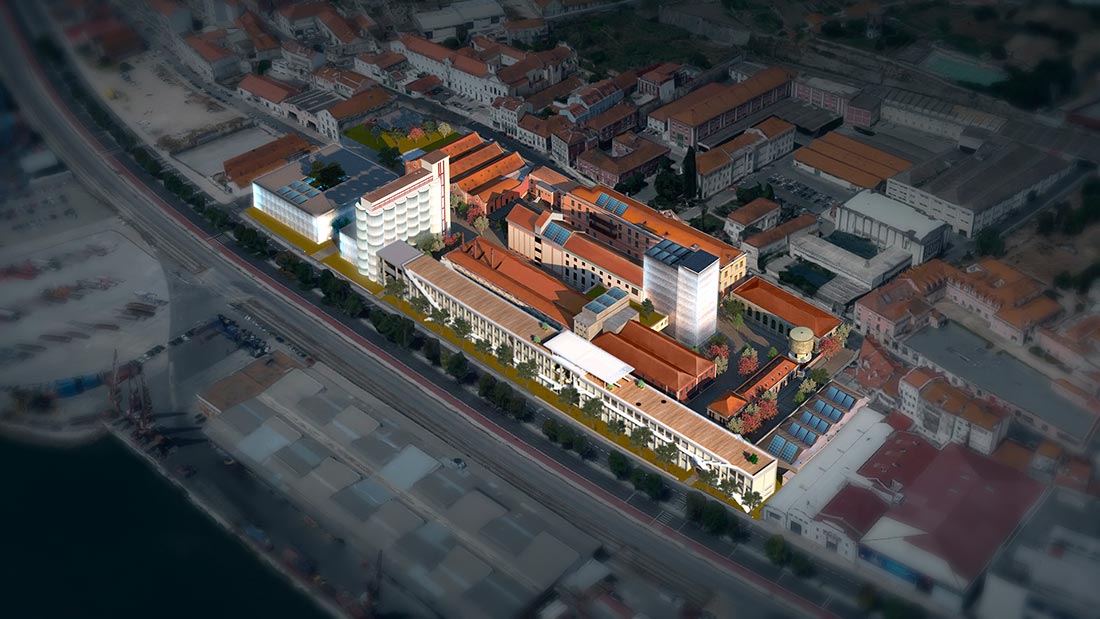Some cities around the globe have carved out such a special place in the minds of people in the startup world that they are effortlessly associated with the best business launch experience.
European cities like London, Paris, Berlin, and Barcelona are usually mentioned in the same breath as San Francisco or New York when discussing the top startup hubs in the world.
But in recent years, the name of another city has been featuring heavily in the news coming out of the startup ecosystem in Europe: Lisbon.
These days the Portuguese capital is officially regarded as one of the fastest-growing startup hubs on the continent.
A 2017 report by Startup Europe Partnership found that Portugal’s startup ecosystem is growing twice as fast as the European average. It has already produced several unicorns.
According to the EU Startup Monitor 2018 report, Lisbon stands alongside London, Berlin, Paris, and Copenhagen as the biggest hubs for startups in Europe.
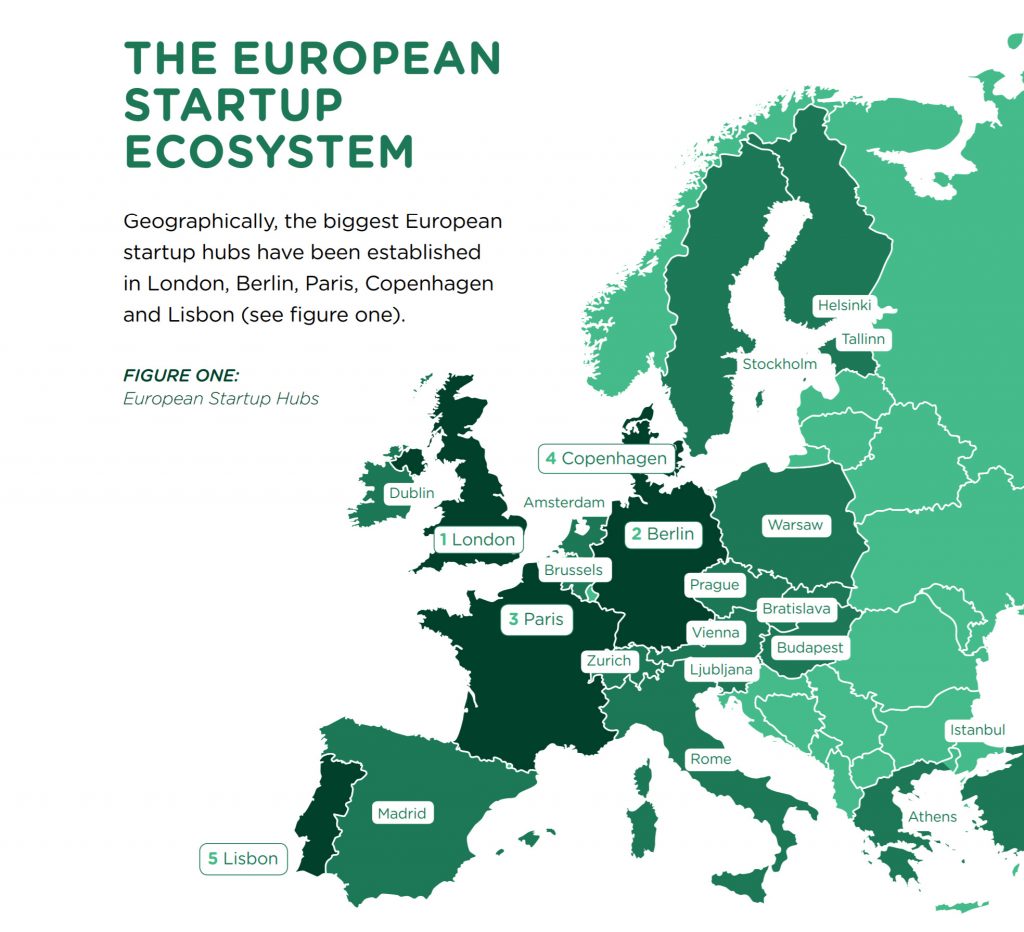
It is true that Portugal, a country of 10 million people, was in the grip of a financial crisis in 2008 and a debt crisis between 2011 and 2014.
Indeed, it does not rank high on the list of the strongest economies in the European Union. It is true that it is not among the most technologically advanced countries in Europe. But it seems it has a sweet spot that keeps attracting more and more entrepreneurs.
Lisbon in particular may not check all the boxes for tech-heavy businesses, but its human touch is casting a spell over those who want to realize their business dreams while having a fulfilling social life.
Slow But Steady
Lisbon’s journey to make a name for itself as an ideal business destination has been a “slow but steady” journey, and the city is now reaping the rewards of its patience and determination to bounce back.
According to fDi Markets, a Financial Time’s data service, Lisbon was the fastest-growing capital in Western Europe for greenfield foreign investment in 2018. The city attracted 42 projects valued at $1.1 billion.
The largest portion of the investment was channeled into the software and IT sector, followed by business services, real estate, and tourism.
According to an investment report by the Lisbon-based Beta-i—one of the main entrepreneurship and innovation organizations in Europe—deals by business angels in 2018 showed a 40% increase compared to the previous year, amounting to an investment of about €11 million in Portuguese startups.
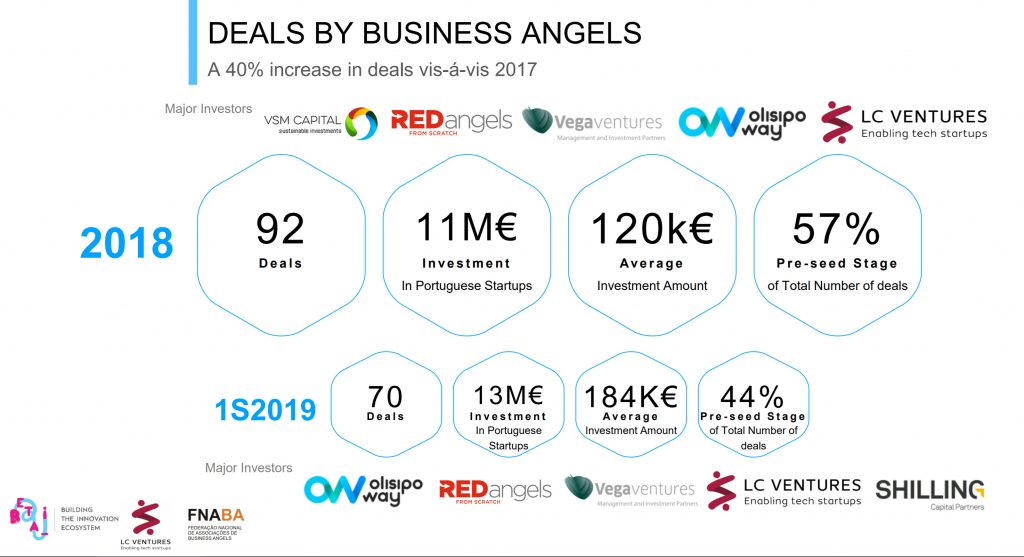
There was an increase of 80% in the number of venture capital deals in 2018 vis-á-vis 2017, and €47 million was invested in Portuguese startups through 56 deals.
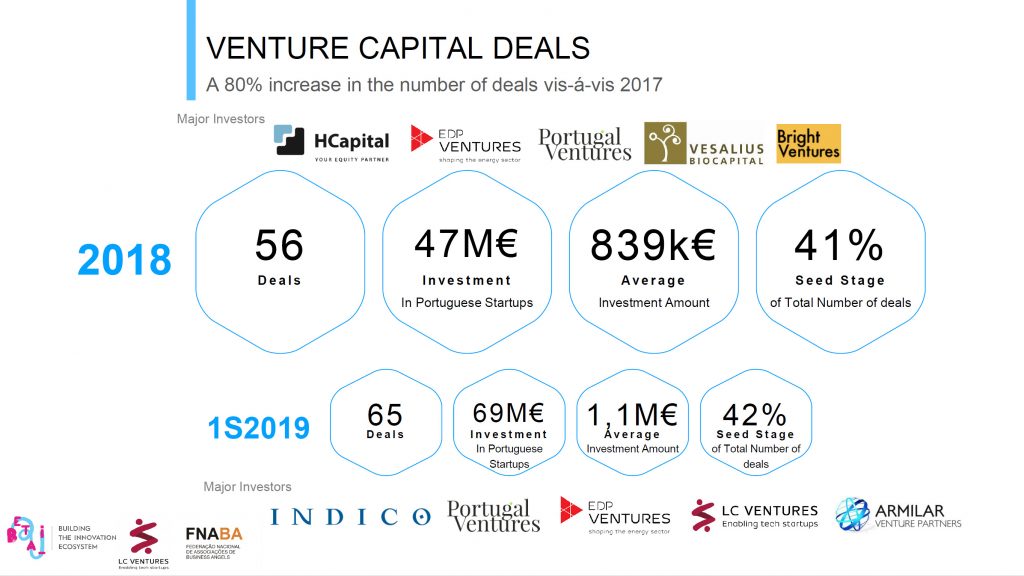
Besides, an investment of €389 million was made in Portuguese startups as a result of eight growth capital deals in 2018.
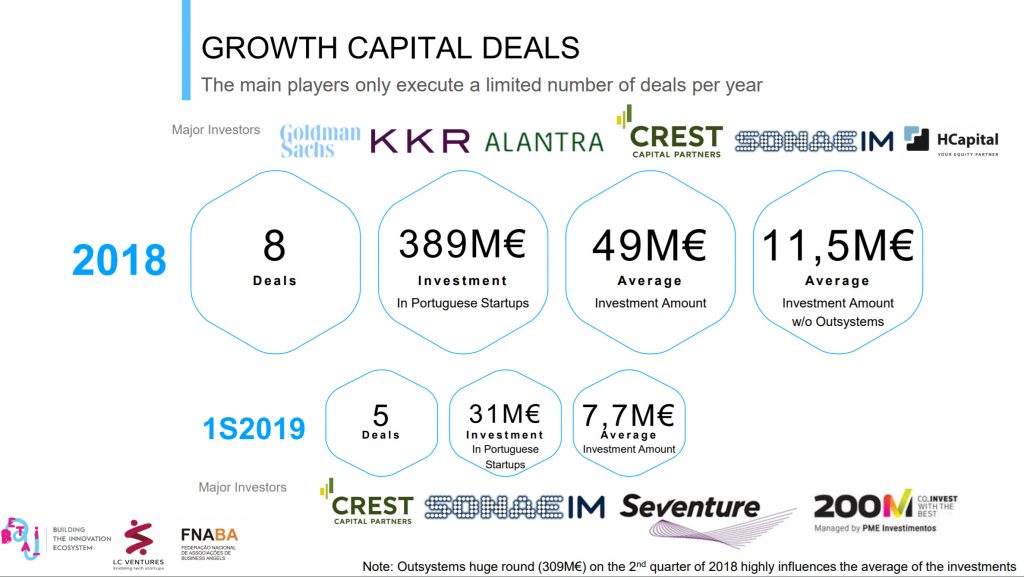
The success of Portugal’s capital in supporting homegrown tech companies and attracting foreign talent, companies, and investment, is reflected in the increasing number of incubators, accelerators, and co-working spaces in the city.
Startup Lisboa, one of the oldest entities created to support the startup community in Lisbon, has been playing a major role in putting the city on the technology map alongside other accelerators and incubators.
Read more: Startup Lisboa: An 8-Year Journey to Promote Spirit of Community
It has so far supported around 400 startups who have contributed to the creation of many job opportunities, not only inside the country but also beyond the borders.
According to Startup Lisboa’s website, entrepreneurs from more than 40 countries have taken part in their initiatives and around 3,500 jobs have been created by participants. They have raised over €120 million worth of investment in total.

One of their most successful initiatives is Launch in Lisbon, a soft landing program that helps foreign entrepreneurs and investors set up their business in the Portuguese capital.
Seventy-five percent of the participants decided to move or launch their company to Lisbon after taking part in the program. Also, 100 percent of the participants said they recommend Launch in Lisbon.
One significant initiative that Startup Lisboa is currently managing is the Hub Criativo do Beato project, which is expected to dramatically change the dynamics of the startup ecosystem in Lisbon for the better.
Read more: Talent, Good Quality of Life in Lisbon Luring Foreign Startups
When completed, the innovation center, which is taking shape over a 35,000 m² area, will have the capacity to host more than 3,000 people.
Web Summit
Lisbon’s profile as an attractive business hub got a boost when it replaced Dublin as the host of Web Summit, Europe’s largest tech event, in 2016.
Its aspirations of becoming a technology hub were further strengthened after it was announced in 2018 that it will remain the host for another 10 years.
Now Let’s have a closer look at what makes Lisbon so attractive for business:
– Based on the 2019 Global Peace Index, Portugal is the 3rd safest country in the world and the 2nd most peaceful country in Europe after Iceland.

– Portugal is ranked 39 among 190 economies in terms of ease of doing business, according to Doing Business 2020, the latest annual ratings published by the World Bank.

– Startup Heatmap Europe, surveyed 3,000 founders for its 2018 report, the results of which showed that Lisbon is the 5th most desired startup city in Europe.
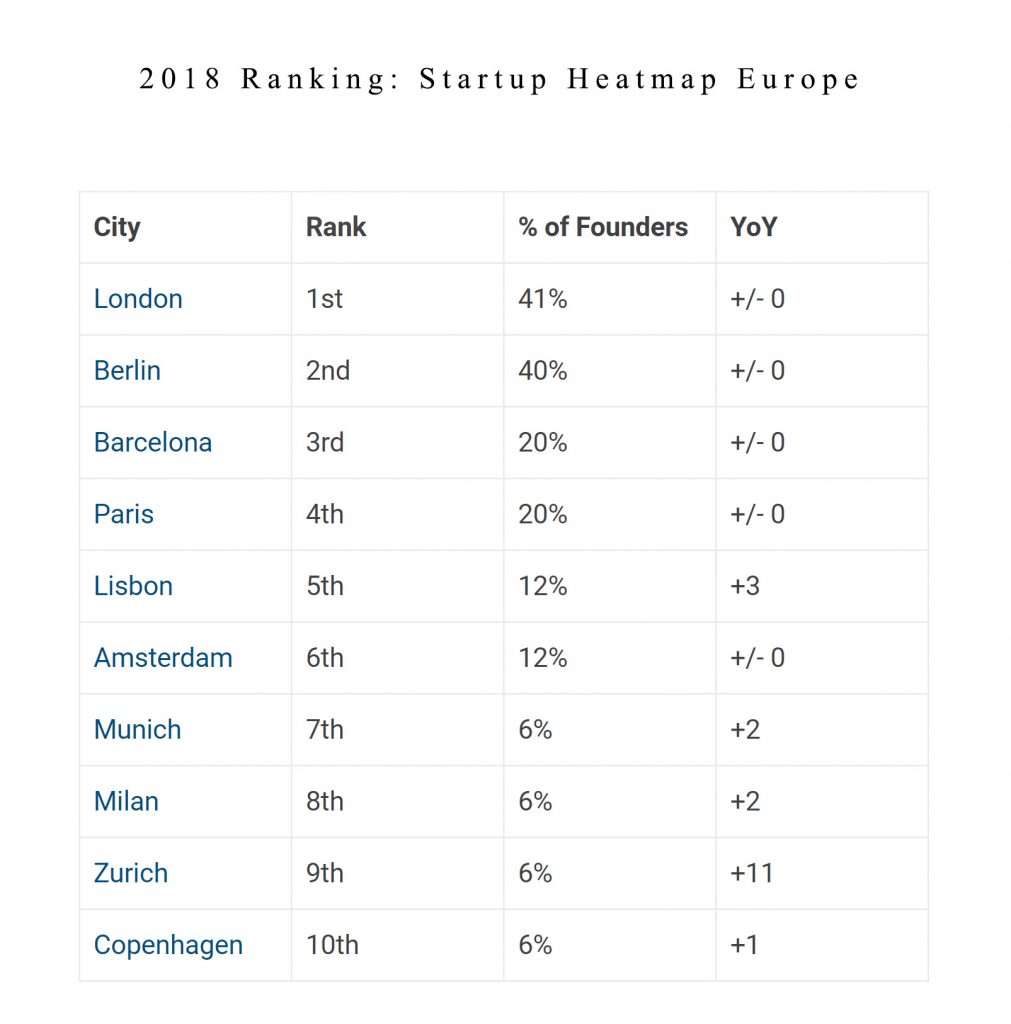
– Lisbon ranks fourth in the world in the StartUp City Index compiled by UK’s leading freelance marketplace PeoplePerHour, which looks into a variety of factors such as cost of living, quality of life, the ease of starting a business, and the cost of office space.
– According to the location assessment tool fDi Benchmark, labor costs and living costs within the IT and software sectors are lower in the Portuguese capital than other European tech hubs like London, Berlin, and Barcelona. This provides startups with a longer runway.
– Another positive is that Portugal’s property market is still very competitive despite price rises in recent years.
– Various government initiatives have made it easier for Lisbon to attract non-EU tech talent. These include Portugal’s Startup Visa and different types of tax incentives and residency programs.
– Startup Portugal, a public-private think tank, operates as a medium between government, entrepreneurs, incubators, and accelerators. It identifies the needs of the ecosystem and helps implement public policies and private initiatives that serve the startup community.
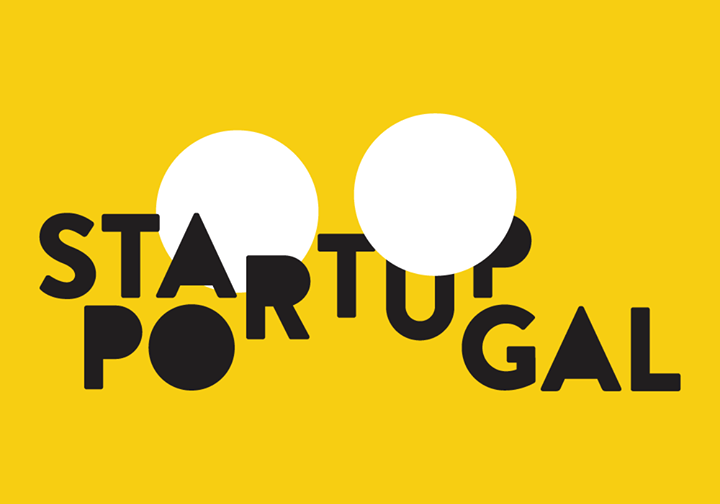
In 2018, a new set of initiatives and an improved National Strategy for Entrepreneurship called Startup Portugal+ was announced by the Portuguese government.
– Portugal is very well-positioned geographically. The fact that it is in such proximity to the U.S. and other major technology hubs of the world as well as its pleasant climate add to its charm.
– The education system in Portugal has evolved over the years and has made remarkable gains. Highly qualified professionals graduating from Portuguese academic institutions are fueling the tech scene in Lisbon.
– There’s a high level of English language proficiency among Portuguese, especially the younger generation.
Read more: Startup Portugal Aims to Ease Talent Attraction, Collaborative Investment
– The well-developed infrastructure in Lisbon gives entrepreneurs another reason to move to this city.
– Big names have hit the Portuguese scene in recent years. For instance, Google has opened a support center on the outskirts of Lisbon, creating hundreds of tech jobs. Other arrivals include Mercedes, Volkswagen, Amazon, Huawei, Cisco, BMW Bosch, and Siemens.
Challenges Ahead
Lisbon, like any other city in the world, faces some challenges and there’s always room for improvement.
For instance, the average salary in Portugal is still rather low for Western European standards.
Additionally, the startup boom in Lisbon has led to an increase in the cost of rent in the city. Rent prices hit an eight-year high in 2018, according to a report from the residential price index released by Confidencial Imobiliário.
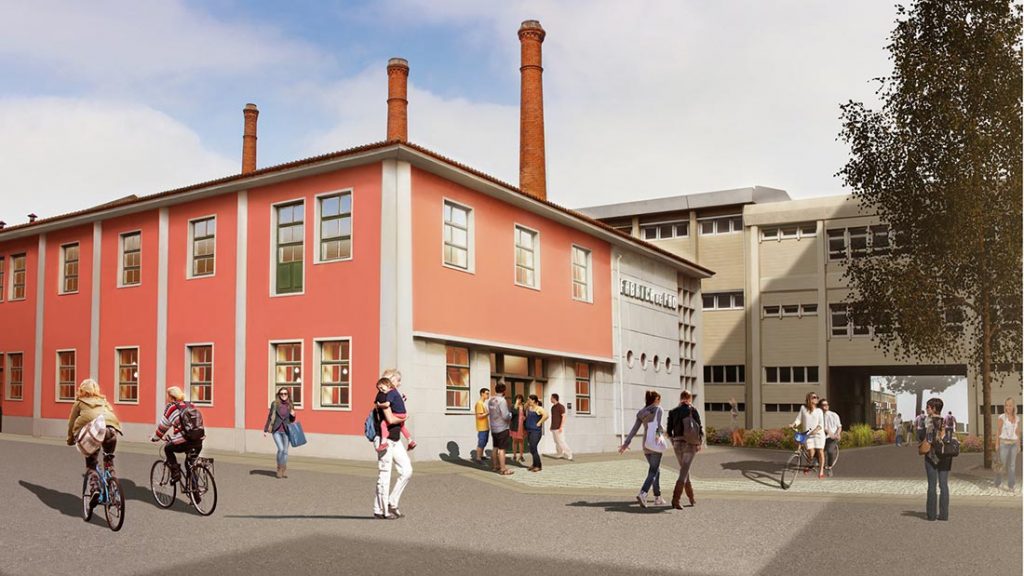
The danger is that it would drive young people out of the city center, which in turn would take away from the vibrancy of Lisbon.
However, the government has taken a proactive approach to address the issue. Lisbon City Council is developing thousands of new low-rent homes across the capital to keep the situation under control.
Despite of all the challenges and obstacles, experts, officials, and entrepreneurs are very optimistic about the future of the startup ecosystem in Lisbon and believe that it will continue to shine as a land of opportunities for those who want to shoot for the stars in the sky of technology.




